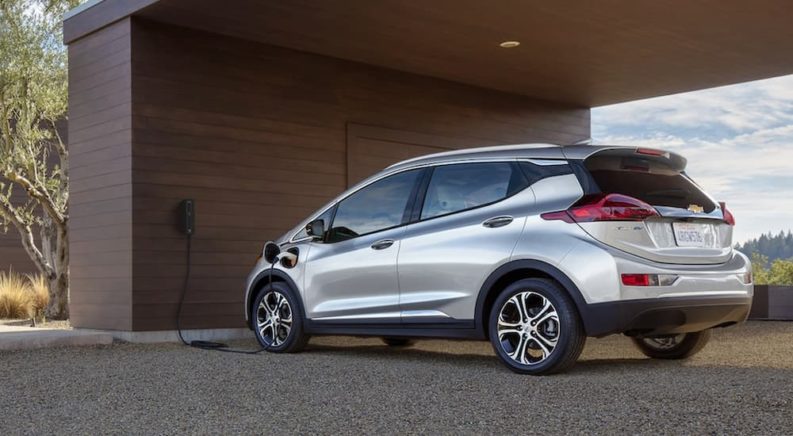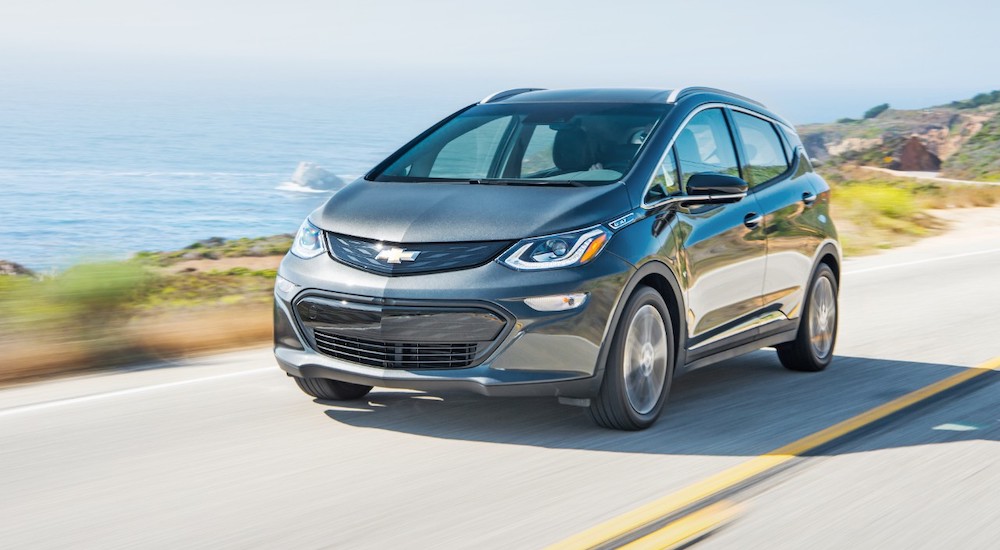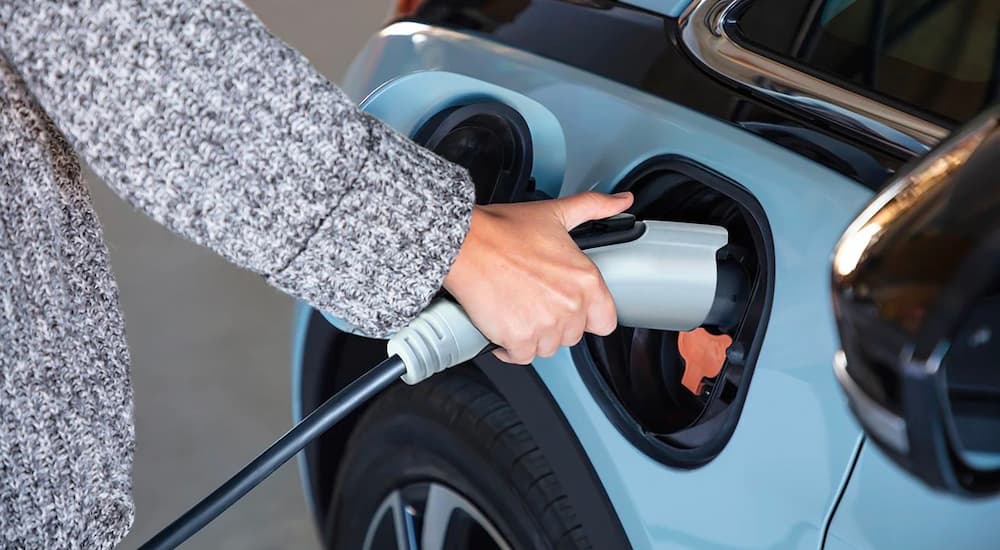Hello friends, it seems like just last month I was writing about how there are some clear issues with the batteries in the Chevy Bolt EV. Oh, wait – that was last month! Now I’m not a mystic or some other kind of prescient wizard; no, I just pay attention to what’s going on and notice when a major car manufacturer is doing everything possible to avoid an expensive solution to a serious problem. That’s exactly how I’d describe what has happened with Chevy and the Bolt EV batteries that have been catching fire.
Now, to be fair, Chevy is finally doing the right thing to solve this problem – hence the name of this article. But to be even fairer, they put this off for as long as possible and tried numerous other, less expensive, solutions before really addressing the problem. Most people who work in any technological field will tell you that trying to fix a hardware problem with a software solution is not usually destined for great success. So let’s take a look at what the situation is, the proper solution Chevy is not implementing, and what it all means.
Recap on the Bolt EV Fire Situation
As I reported just last month, the first instances of Chevy Bolt EVs catching fire seem to go back to as early as 2019, though the major cases that started getting attention were in 2020. The first was in June in Florida, with another on July 4th in Virginia. Two more fires quickly followed in July, with more in August and three more in October. In many of these cases, not only did the vehicle catch fire, but even after the fire was put out, they would combust again – in one case, the Bolt EV burst into flames again after being towed to a dealership.
Chevy’s response to this was to issue a recall, but it was a pretty weak one. For starters, their solution was to instruct owners to not charge their vehicles beyond 90% and to not let them fall below 70 miles of charge. In addition to this, a software update was released, and Chevy seemed confident that the patch would correct the issue.
And yet, fires started again this year – in some cases involving Bolt EV models that had received the software update. The first one was in May in Virginia (what’s going on in Virginia?), when a vehicle that had been fully charged and unplugged caught on fire after charging. Two more fires in July occurred after charging (again), and in both cases, the vehicles had received the software fix for the fire issue.
This resulted in a second recall notice that once again instructed Chevy Bolt EV owners to restrict charging to 90% and not let their vehicles fall below 70 miles of range. In addition to this, Chevy instructed people to park their vehicles outside after charging and not leave them charging overnight. But up until recently, that was Chevy’s last word on the issue.
The LG Batteries
I reported last month that there was an interesting side note to this story, which involved the Hyundai Kona. The Kona used LG batteries and began having issues with them catching fire – the Chevy Bolt EV also uses LG batteries. Starting to see a pattern here? Hyundai’s immediate reaction to this issue was a full recall and replacement of all the batteries that could be potentially dangerous – compare that to Chevy’s initial reaction of trying a software update.
Chevy Issues a Proper Recall
Last month, I ended my article commenting on worries that drivers have about the risks of battery fires with EV models. I wrote, “It would be easier to assuage those concerns if companies like GM would follow Hyundai’s lead and immediately solve this kind of thing in a meaningful way, rather than trying to have their already overworked software engineers fix faulty hardware.” Well, wonder of wonders, here we are…
On August 20th, GM announced that they have expanded their existing recall to include all Chevy Bolt EV models from 2019 to 2022 – including the all-new Bolt EUV. In addition to this, they’re going to replace all defective battery modules in these models in order to finally fix the issue the right way. I’ll admit that I was surprised to see they expanded this to also include the Bolt EUV and newer models – last time I checked, no models from this year or last had caught fire yet, but I appreciate the aggressive move.
This brings the total recall to about 142,000 vehicles, which is a huge number of potential battery modules to replace. The replacements will be done free of charge to customers, of course, and until the batteries can be replaced, all Bolt EV and EUV owners have been instructed to continue following limits on charging. I’m someone who has no problem criticizing the auto industry (obviously), but I’ll also say when they do the right thing, and in this case, they have done so.
The Cost of These Things
This fix doesn’t come cheap – for GM, for LG, and for many other people. Those who’ve already suffered vehicle fires have also had a tremendous amount of property damage as a result. Fortunately, as far as I’m aware, no one has been injured or killed in any of these fires due to how they’ve started, which is the one piece of good news here.
For GM, this is going to be an incredibly expensive process – again; they’re dealing with more than 140,000 vehicles that need to be inspected and have their batteries potentially replaced. The recall up to this point had cost GM an estimated $800 million, and GM has stated that this expansion of the recall process is going to cost an estimated $1 billion. A little quick napkin math would indicate that, when all’s said and done, GM is going to pony up about $1.8 billion to resolve this issue – I can’t help but wonder if it would’ve been cheaper to do a hardware fix a year ago instead of trying a software solution.
Of course, GM isn’t planning on just shouldering this full expense and calling it a day. They’ve already stated they intend on getting compensation for this cost from LG, citing the fires as being the result of faulty hardware in the battery manufacturing. LG will probably try to pass blame elsewhere, too – but when you look at the issues with the Hyundai Kona in addition to this, it doesn’t paint a pretty picture.
Finally, GM employees are also getting hit by this. The Orion Assembly plant in Michigan that makes the Chevy Bolt EV had already been idled for a week in August due to the chip shortage and the impact it’s had on manufacturing. GM announced that it would extend the downtime at the plant by an additional two weeks, citing a shortage in battery packs as they start handling this recall. Nearly 1,000 people work at that plant; this issue and the recall has them sitting on their hands and wondering what the future holds.
What about the Future?
This whole situation certainly won’t ease fears that some drivers have about the risks of EVs and their sophisticated battery systems. The statistics don’t help much either: while Tesla insists that internal combustion engines are 11 times more likely to catch fire than their vehicles, other data from the London Fire Brigade indicates that cars plugged in to charge are more likely to catch fire than conventional vehicles. Hopefully, there’s a lesson learned from this: acting quickly to implement real solutions – even if they’re more expensive at the time – helps build confidence and can save money in the long run.
Will auto manufacturers actually recognize this and fix things properly, the first time, in the future? We’ll just have to wait and see. In the meantime, I’d suggest you keep your EV parked outside, don’t charge it in the garage, and maybe keep it away from any impressionable children or household pets. Just in case…






